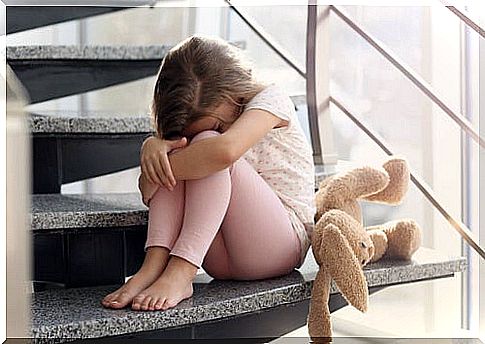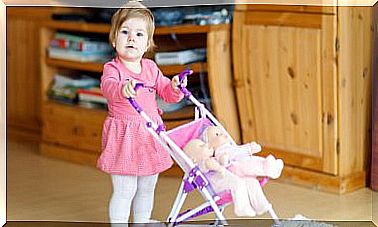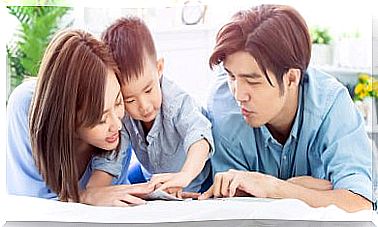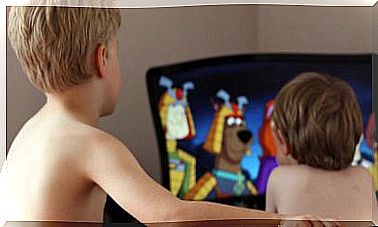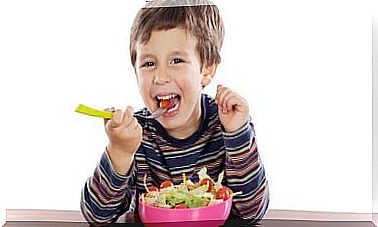Do You Know What The Negative Pygmalion Effect Is?

In both pedagogy and psychology, the Pygmalion effect refers to the harmful way in which we place our expectations on others.
To be more specific, the harmful form of this effect is called the negative Pygmalion effect. While, on the contrary, the beneficial form is known as: positive Pygmalion effect.
Regarding the upbringing and education of children, it is necessary to review both the expectations that we can in our children and the way in which we influence their lives. In other words, our expectations can determine and even limit its development.
The negative Pygmalion effect
When we have expectations or expect something from someone, even unconsciously, we look for elements in their way of acting that confirm what we already think, ignoring those that do not coincide with our idea.
Expectations can be conveyed verbally as well as tacitly. Regardless of this, both types of action have an influence on children.
All human beings create ideas for themselves, even before communication occurs. These ideas can be prejudices or expectations. Human nature is like that. Everything is judged and labeled to recognize things and establish a consistent pattern of action.
And, although it is something very common, it is not entirely innocuous. Many times the judgments turn into something toxic. For this reason, many parents, relatives, friends, teachers and caregivers are quick to label children and thereby condition their behavior.

Placing expectations on children often hurts them emotionally. Their self-esteem is mainly affected and this, in turn, can create other discomforts and problems in the short, medium and long term.
“He’s mean and disobedient, I’m sure he’s going to be a bad student …”, “He’s too restless, he won’t get far”, “He’s not smart, he’s too quiet and doesn’t socialize”, “He’s shy and doesn’t know how to do anything. ”.
These phrases not only act as sentences but also as punishments. How? By causing children, in one way or another, to end up acting based on our prejudices and expectations.
How does the negative Pygmalion effect affect children?
In the relationship with children or adolescents, we must be very careful and pay attention to the way in which we transmit and express our ideas, especially those that have to do with their way of being, thinking or acting.
Our expectations can seriously impair their development, damage their self-concept, undermine self-esteem and self-confidence.
The child will develop his self-concept according to the evaluations he receives from his parents, relatives, colleagues, and so on. And if, from a young age, we tell them or give them to understand that they will not be able to do something, in the future, surely they will not even try.
Not because they lack skills, but because their environment has made them adopt the idea that they are not enough for it or that, whatever they do, they will fail.
The negative Pygmalion effect in the school environment
If a teacher believes that a student has limited potential, surely this belief will influence the child’s performance. It will also reinforce the belief that you do not have enough capacity, even if this is not the reality.
Your poor performance is not dependent on your truly lacking the ability to perform those tasks. And it is that it has not even been given the opportunity to develop them.
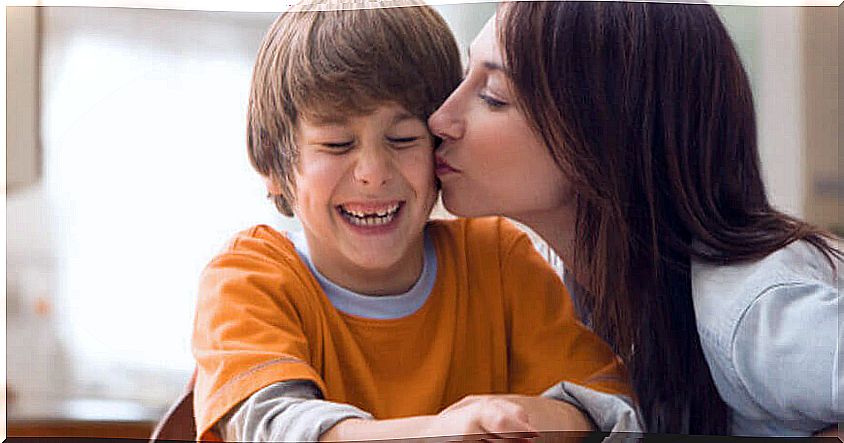
If, on the contrary, the teacher believes that the student has a great capacity and abilities, he will surely propose exercises that develop his potential. This is the way to use an expectation to favor another.
For this reason it is very important that educators convey positive and realistic expectations. This will promote your self-confidence and self-confidence, increasing your performance.
How to use the Pygmalion effect to help children?
Instead of thinking that the child does not have enough capacity or ability (or not at all), help him achieve whatever he sets his mind to. Teach him and give him the tools he needs to go as far as he wants.
This will boost their self-confidence and improve their performance and self-esteem. This does not mean that we lie to you, but that we motivate you. Remember that any progress you make should be valued and encouraged.
Do not forget that we are the ones who have to believe in him for him to believe in himself. Do not set goals that are too unattainable or be delusional, but to maximize the potential you already have.
